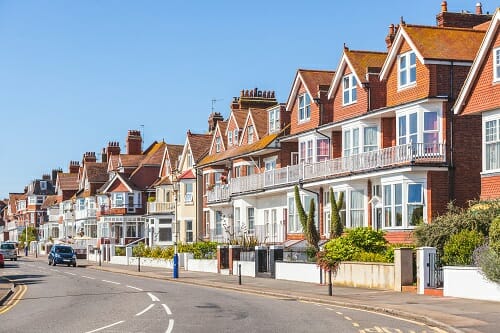As Safe As Houses? The Problem of Property Fraud

If you live abroad your property might be more at risk if it:
- is empty
- is rented out
- is mortgage-free
- isn’t registered with Land Registry
The type of frauds Land Registry see are where fraudsters steal your identity and sell or mortgage your property by pretending to be you. If it isn’t discovered promptly, you as the true property owner might find your property has been transferred or sold without your knowledge. Fixing the mess can be distressing, time-consuming and costly.
Thankfully property fraud is quite rare, but if you are the unlucky victim, it can have devastating effects. Prevention is therefore better than cure.
How can you protect yourself?
- Ensure your property is registered. If you become an innocent victim of fraud and suffer a financial loss, you may be compensated. If your property isn’t registered then no compensation is payable. Find out about registering land.
- Make sure your contact details are up-to-date so we can reach you easily. You can have up to three addresses on the register including an email address or an address abroad. If your details are not up to date, you may not receive our letters or emails if we need to contact you.
- Sign up for Land Registry’s free Property Alert service. We send email alerts when there is certain activity on a monitored property e.g. if someone tries to register a mortgage. You can monitor up to 10 properties and if you receive an unexpected alert, you can decide whether to seek further advice. See our YouTube guide to setting up Property Alert.
- If you feel you might be at risk you can request a restriction on their property. A restriction is intended to stop activity on your property, such as a transfer or a mortgage, unless a conveyancer or solicitor confirms the application was made by you. There is no fee to home owners who do not live in the property they wish to protect. Request a restriction.
- If you are a company wanting protection you can make a request to enter a restriction on up to three properties, free of charge, on form RQ(Co). A solicitor must certify that they are satisfied the company transferring, leasing or mortgaging the property is the same company as the owner before any new sale, lease or mortgage is registered. They must also certify that they have taken reasonable steps to establish that anyone who executed the deed on behalf of the company held the stated office at the time of execution.
If you think you may be the victim of property fraud:
- Contact our property fraud line on 0300 006 7030 (Monday to Friday, 8.30am to 5pm) or email reportafraud@landregistry.gov.uk.
- Contact a legal professional such as a solicitor or Citizens Advice and Action Fraud (actionfraud.police.uk).
For more information visit www.gov.uk/propertyfraud.